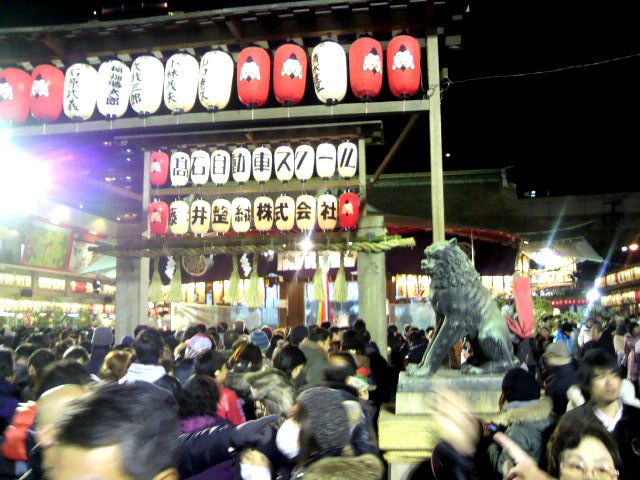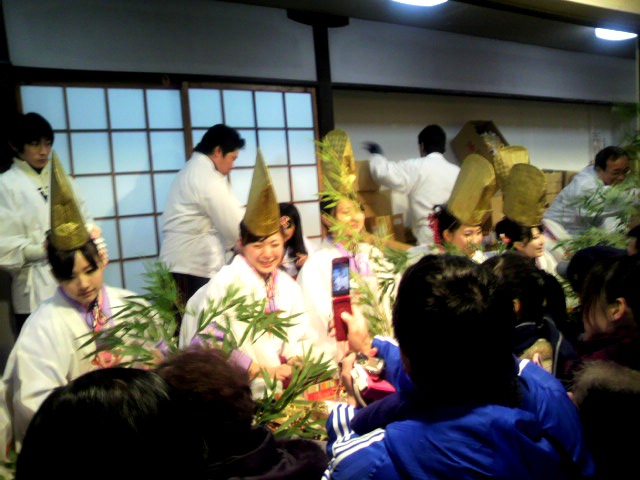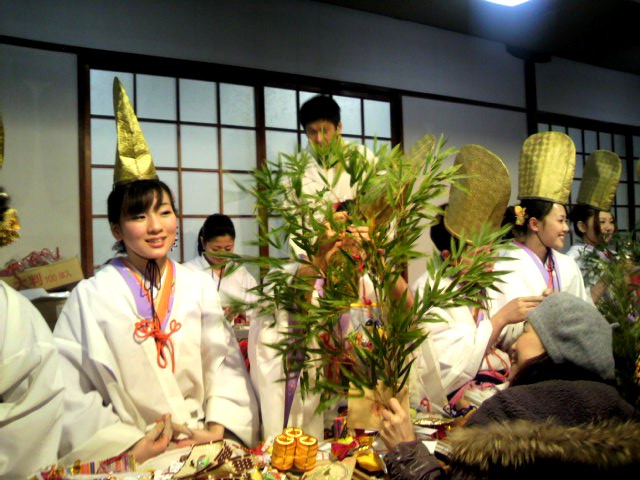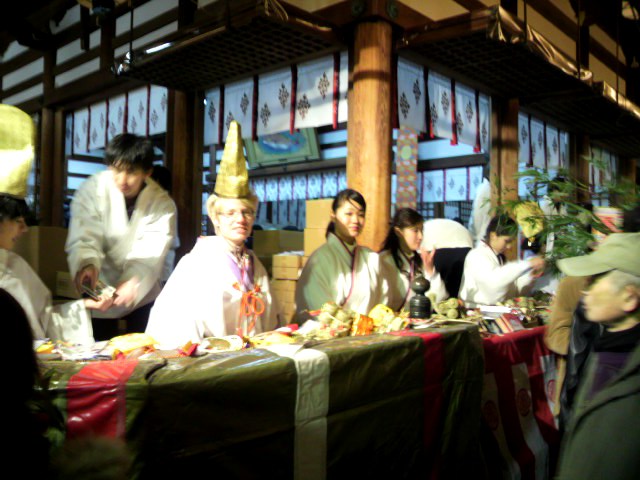Home / ブログ / 十日戎 in 今宮(隣駅)
ホテル中央グループブログ
ホテル中央セレーネ
十日戎 in 今宮(隣駅)
アップが遅くなっていしまった・・・・ ( ノω-、) ウウッ
買ってもらったデジカメを忘れてしまった・・・・ ( ノω-、) ウウッ2
・・・ってなことを言いながら、1月10日に今宮のえべっさんへ行ってきた報告を始めます♪

あたま、頭、アタマ・・・手を伸ばさないと前の人の背中しか写せないんじゃない!?
自分の目ではお参りの位置が見えなくて、どんどん左に流されちゃったw
流れに逆らわず進んでいくのはとても心地良いのだけどお参りするのに2週もしちゃう!?


美しくて可愛らしい福娘ちゃんたちを写したくて写したくて、あたしがんばったよ!
寒くて手が震える。。。画像もブレる。。。
決して美しさへの嫉妬から震えたわけじゃないんだからね!

あらま!青い目の福娘ちゃんを発見!!
日本の神様も国際化しちゃったのね。
ちなみに1分前にわかったことですが、七福神の中でえべっさんだけが唯一日本古来の神様だったんです。
あんな大きな鯛はインドの大きい海老でしか釣れないと思ってました。
えべっさんは耳が不自由なので板を叩きながら大きな声で(*゚ノO゚)<エベッサーーーーーン!と叫ばないと願いを聞いてくれないんだって!
なので今年の願い事は聞いてもらえなかったみたいですTT_TT
Origins as Hiruko
Ebisu was originally named Hiruko, meaning "leech child". He was the first child of Izanagi and Izanami, born without bones (or, in some stories, without arms and legs) due to his mother's transgression during the marriage ritual. Hiruko struggled to survive but, as he could not stand, he was cast to the sea in a boat of reeds before his third birthday.[1] He eventually washed ashore--possibly in Ezo and was cared for by the Ainu Ebisu Saburo.
Legend
Stature of Ebisu in front of Ebisu Station, TokyoThe weak child overcame many hardships, grew legs (and, presumably, the rest of his skeletal structure) at the age of three, and became the god Ebisu. He remains slightly crippled and deaf, but mirthful and auspicious nonetheless (hence the title, "The Laughing God"). He is often depicted wearing a tall hat--the Kazaori Eboshi holding a rod and a large red bream or sea bass.
Ebisu's festival is celebrated on the twentieth day of the tenth month, Kannazuki (the month without gods). While the other eight million members of the Japanese pantheon gather at The Grand Shrine of Izumo, Ebisu does not hear the summons and is thus still available for worship.
Ebisu is frequently paired with Daikokuten, another of the Seven Gods of Fortune, in displays of the twin patrons by small shopkeepers. In some versions of the myth they are father and son (or master and apprentice). Also, these two are often joined by Fukurokuju to be the "Three Gods of Good Fortune".